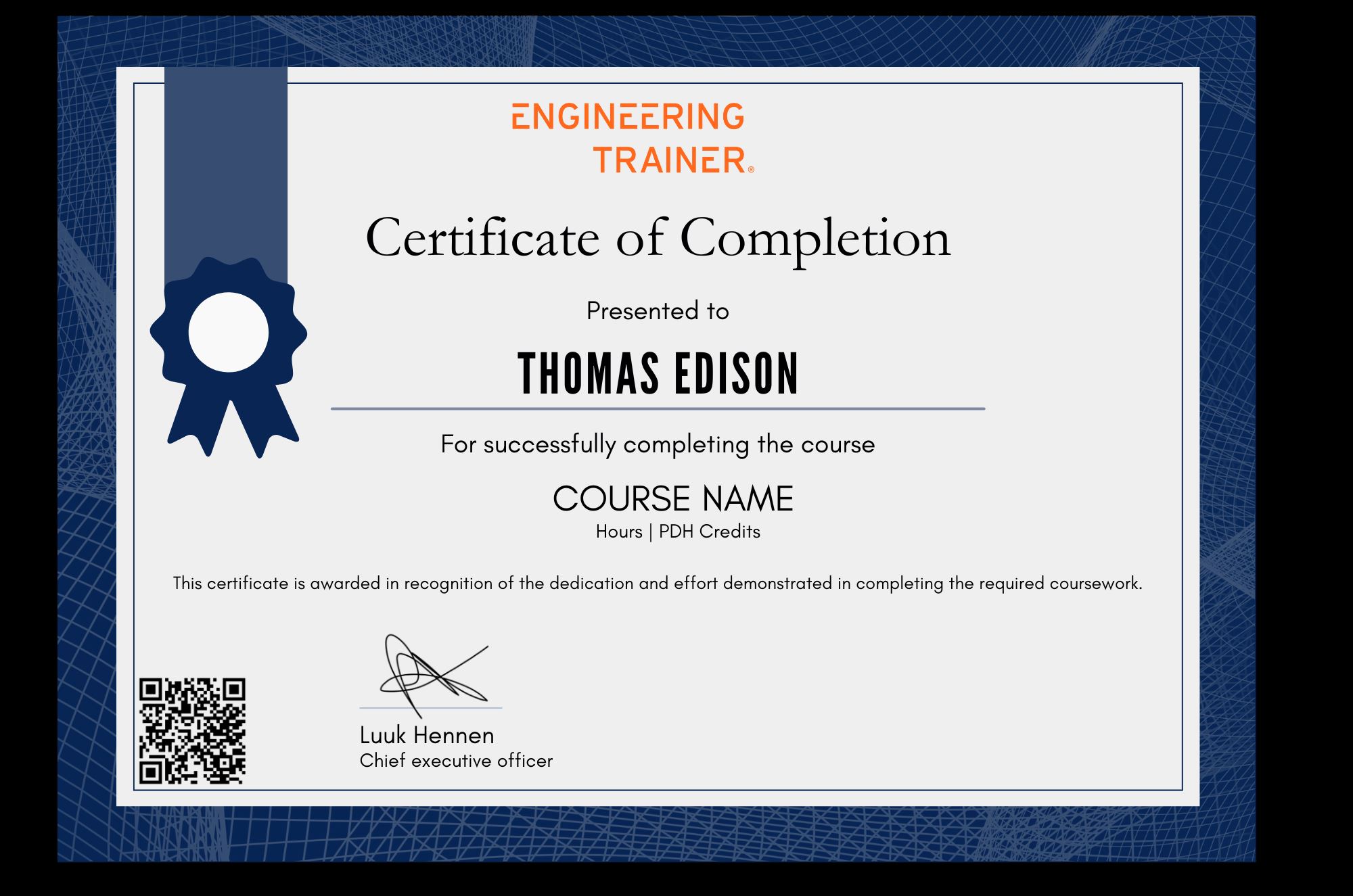How to Review a Pulsation Study
Why take this course?
This self-paced course guides non-specialists in reviewing pulsation analysis reports without needing expert-level knowledge. Learn key report components, how to assess result robustness, and validate findings using BOSview software. The course includes video lectures, quizzes, and a certificate with PDH credits, offering 1-year unlimited access to refresh your skills anytime.
What you'll learn
After this course, you...
• are able to perform a concise review of a pulsation study to verify that the study meets the minimum quality levels,
• understand the important aspects of a pulsation report,
• know how to utilize BOSview to review pulsation study results,
• can identify potential issues that should be reviewed by an expert,
• can ensure that the documentation of a pulsation analysis is complete, enabling an in• depth review when required.
About the course
Pulsation studies can result in quite elaborate and complex reports with large output data sets. To the non-specialist it may feel like you are being confronted with difficult recommendations to which you should adhere, yet it is unclear how these were concluded based on the large "black box of data" which is submitted by a pulsation specialist. You may therefore think that you need to be a subject matter expert to review pulsation reports. Whilst this is partly true, there are significant parts of these studies that you can review for yourself, even if you are not an expert.
This course demonstrates the steps a non-specialist can take to review a pulsation analysis.. It is shown which topics should be present in a pulsation report and how they relate to the conclusions and recommendations. How to evaluate the robustness of the results in the pulsation study is explained, and to illustrate how to validate these, the BOSview software suite is used. The topics in this course include how to review the chapters in the pulsation analysis report about pumps and compressors, dampers, piping geometry, pulsation levels and mechanical vibrations.
Important note: This course does not cover pulsations and vibrations fundamentals or details of how to conduct the different design analyses per API618/API674.
This course contains 4 online courses based on video content and demonstrations in BOSview. An example model is explained for each subject that is discussed.
You receive 1-year unlimited access to the course. This allows you to perform courses again, should you need to refresh your knowledge for your work projects.
Meet your instructor
Who should attend this course
• Pulsation and vibration engineers who want to know how BOSview can be used as supplementation to standard documentation.• Non-specialists who have received pulsation and vibration study results from a third party.
• Project managers involved with the acquisition of pumps and compressors.
Prerequisites
Affinity with industrial plants. Knowing how and why pulsation studies are performed is an advantage, but definitely not a must.Program & Details
-
Introduction and Scope
1. Scope
2. Why is a Pulsation study important? -
Important Aspects of Pulsation Analysis
1. Pump/Compressor
2. Example of reviewing a compressor
3. Damper
4. Example of reviewing a pulsation suppression device
5. Piping geometry
6. Example of reviewing piping geometry
7. Pulsations
8. Example of reviewing pulsation results -
Important Aspects of Vibration Analysis
1. Fatigue failures
2. Understanding mechanical vibrations
3. Example of reviewing mechanical vibration results -
Summary of Required Documentation
1. Pulsation aspects
2. Mechanical vibration aspects
3. Results
Certification


Why choose EngineeringTrainer
-
Unlimited Team-wide Access
-
Advance Technical Competences
-
Courses by Industry Authorities
Since using EngineeringTrainer our internal mentorship has a much more matured character.
Logan Chapman - COO at Chapman Consulting Inc.
Request a Quote
Train Smarter. Grow Faster.
Build real-world skills that help you make better engineering decisions, reduce errors, and stand out in your field.





